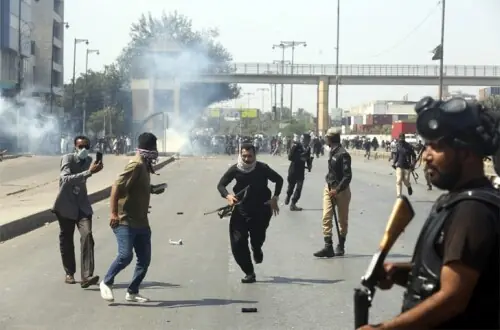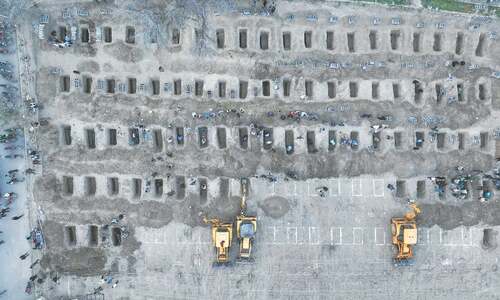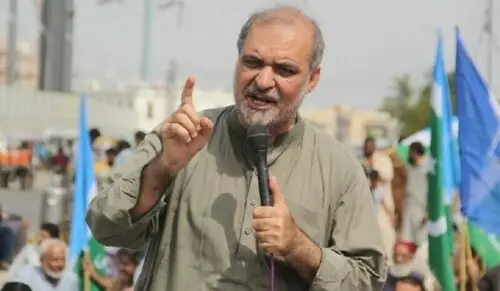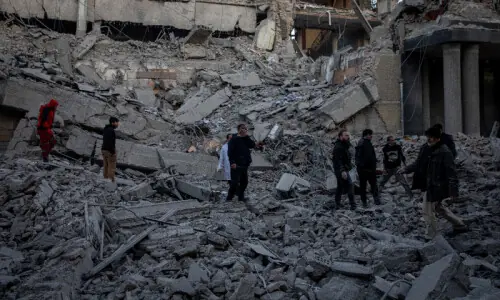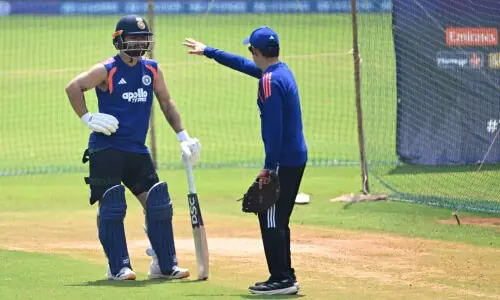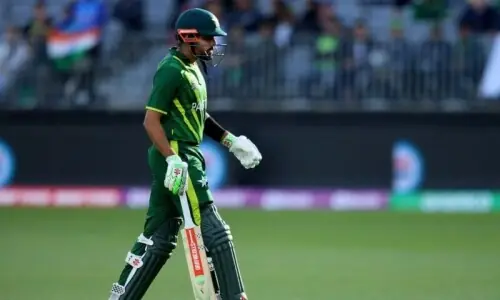NEW DELHI: Britain and India agreed a “new and expanded” defence and security partnership on Friday, under-fire British Prime Minister Boris Johnson announced on a visit to New Delhi.
Johnson travelled to India as he faces criticism at home and the embarrassing prospect of a probe into whether he lied to parliament over the lockdown-breaking “Partygate” scandal.
India is part of the Quad grouping with the United States, Japan and Australia that is seen as a bulwark against an increasingly assertive China. But New Delhi also has a long Cold War history of cooperation with Moscow, still its biggest military supplier, and has refused to condemn Russia for its invasion of Ukraine.
“The threats of autocratic coercion have grown even further,” Johnson said alongside his Indian counterpart Narendra Modi, in an apparent reference to Beijing. “And it’s therefore vital that we deepen our cooperation, including our shared interest in keeping the Indo-Pacific open and free.”
Johnson says New Delhi’s position on Russia not going to change, Ukraine war could last until end of 2023
The new partnership was “a decades-long commitment”, he added, hailing the relationship between “one of the oldest democracies, and India, certainly the largest democracy”.
It was “historic” that Johnson’s visit to India came in the 75th year of its independence, Modi said. “We discussed several regional and international developments and stressed a free, open, inclusive and rule-based order in the Indo-Pacific,” he added.
Exact details of the security partnership were not immediately available.
But Johnson said the two had agreed to work together in defence procurement “to meet threats across land, sea and air, space and cyber, including partnering on new fighter jet technology, maritime technologies to detect and respond to threats in the oceans”.
New Delhi has long sought to bolster its domestic military manufacturing capacity, partly to reduce its dependence on Moscow and partly as a contribution to its “Make in India” campaign.
A stream of diplomatic visitors has been making their way to New Delhi in recent weeks as a US-led alliance seeks to lure India away from Moscow, promising enhanced security, defence and energy cooperation.
Modi had telephone talks with US President Joe Biden last week, while European Commission chief Ursula von der Leyen is due to arrive on Sunday.
India has urged cessation of violence while refusing to explicitly condemn Russia, and has abstained on Western-backed United Nations resolutions censuring Moscow.
“India’s position on Russia is not going to change,” British PM Johnson said following his meeting Modi. “The position on Russia that the Indians have historically is well known. They are not going to change that, of course, that’s true,” Johnson said during a news conference in New Delhi.
“But they can see what is going on and there is an increasing appetite to do more with the UK.”
Johnson also said there may be no swift end to the conflict in Ukraine because of the stiff resistance to Russia’s invasion. Asked if he agreed with defence intelligence assessments that fighting could drag on until the end of next year, he told reporters: “The sad thing is that is a realistic possibility.”
He said Russian President Vladimir Putin had made a “catastrophic blunder” in ordering the invasion. But he paid tribute to the Ukrainian resistance, and outlined planned and potential military support for the country and its neighbours.
Published in Dawn, April 23rd, 2022


